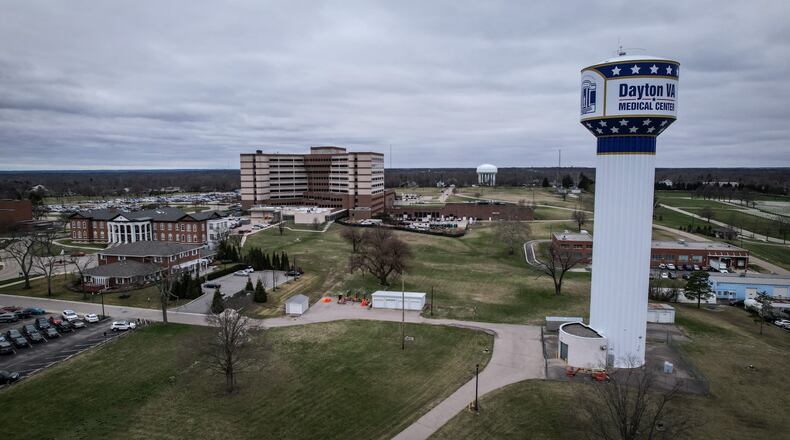The change includes all veterans who served in the Vietnam War, Gulf War, Iraq, and Afghanistan; those who were assigned to certain duty stations in southwest Asia or parts of Africa; and veterans who were deployed in support of certain operations after 9/11.
“This is the result of a push to get veterans the care they need,” said Deadra Samm, program manager of compensation, pension, and environmental health for the Dayton VA, who noted the increase in veterans being screened and treated for toxic exposures.
There are multiple ways veterans can sign up, including:
* Online at va.gov/health-care/apply/application/introduction.
* By phone at 877-222-8387.
* By mailing VA Form 10-10EZ to the Health Eligibility Center at 2957 Clairmont Road, Suite 200, in Atlanta, Georgia, 30329.
*In person at the Dayton VA or nearest VA medical center or clinic.
“We want to bring as many veterans as possible into our care, because the VA is proven to be the best, most affordable health care in America for our veterans,” Samm said.
Federal legislation called the PACT Act, passed in 2022, established that certain cancers and ailments would be presumed to be connected to the burn pits that were used to dispose of trash and potentially toxic materials. For veterans who served during the Vietnam War, hypertension and other conditions were added to the list of problems presumed to be caused by exposure to Agent Orange, which was used by the U.S. military to clear vegetation.
Some military veterans who served in the Middle East said burn pits were nearly everywhere in Iraq and Kuwait. Marcellus Beasley served in the Air Force during the first Gulf War, and described it as “almost like you worked in a chimney,” frequently expelling “black stuff” when he blew his nose.
Beasley said PACT Act benefits he received for a skin condition have changed his view of the VA, saying, “It’s been a huge impact for me.”
Credit: Simon Klingert
Credit: Simon Klingert
The PACT Act has been described as the largest expansion of VA benefits in generations. In the first year after the law’s passage, more than 4.2 million enrolled veterans were screened for toxic exposures, the government says.
The law added more than 20 conditions related to exposures, including high blood pressure, now presumed to be related to military service.
Before the PACT Act, veterans faced higher hurdles in order to demonstrate past toxic exposure, but now, Samm said, veterans only need to show that they have served in one of the affected locations or operations, or participated in service activities that could have allowed for toxin exposure.
Veterans do not need to be sick to file a claim or become eligible, and they don’t need to have been screened for toxin exposure prior to applying for coverage.
For proof of service in the affected areas, veterans can contact the enrollment department by calling the VA at 800-698-2411.
This story contains information from the Associated Press.
About the Author

